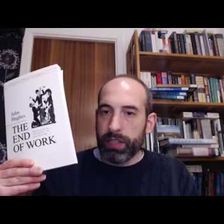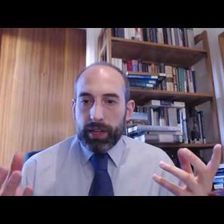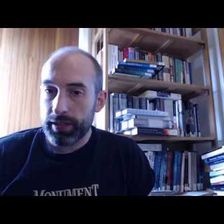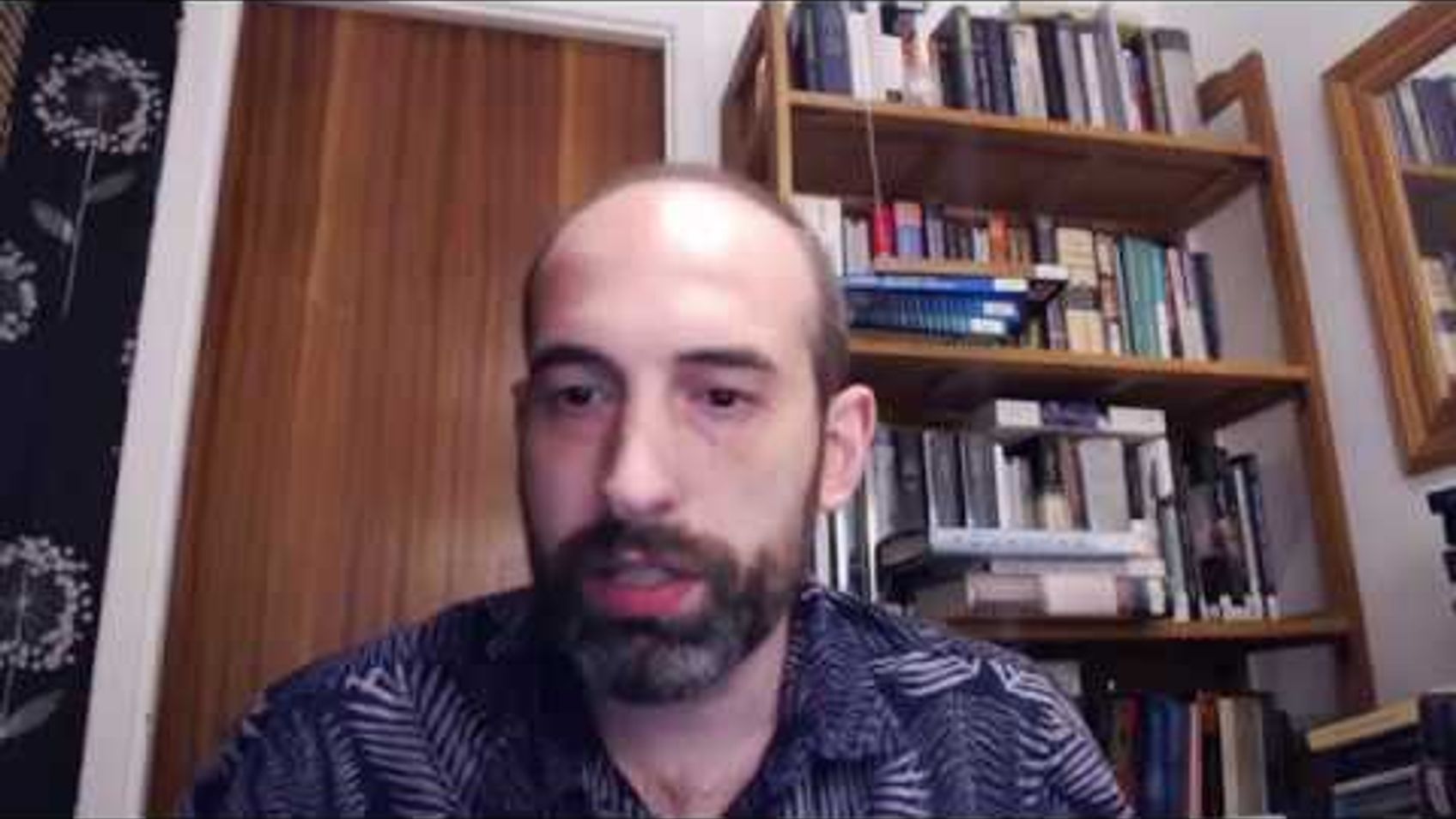Q&A#41 Are Young Elders a Contradiction in Terms?
September 6, 2018

Alastair Roberts
Today's question: "What are your thoughts on 'young elders' in the church? Is there an age restriction for the office of elder?"
If you have any questions, you can leave them on my Curious Cat account: https://curiouscat.me/zugzwanged.
If you have enjoyed these videos, please tell your friends and consider supporting me on Patreon: https://www.patreon.com/zugzwanged.
My new Soundcloud account is here: https://soundcloud.com/alastairadversaria. You can also listen to the audio of these episodes on iTunes: https://itunes.apple.com/gb/podcast/alastairs-adversaria/id1416351035?mt=2.
More From Alastair Roberts

Q&A#42 What is the Case Against Women's Ordination?
Alastair Roberts
September 7, 2018
Today's question: "How would you summarize the argument against the ordination of women?"
If you found this video interesting, you might be intereste

Summary of John Hughes 'The End of Work: Theological Critiques of Capitalism'
Alastair Roberts
September 8, 2018
Within this video, I discuss John Hughes' exceedingly stimulating book, 'The End of Work'. I highly recommend that you get your hands on a copy: https

Q&A#43 How Should We Understand Formal Leadership Within the Church?
Alastair Roberts
September 9, 2018
Today's question: "What is "ordained", formal, leadership in the Church? How do you understand the NT's "episkopoi" and "diakonoi"? What is the connec

Q&A#40 Why is the Tribe of Dan Excluded in Revelation 7?
Alastair Roberts
September 5, 2018
Today's question: "Why is the tribe of Dan excluded in Revelation 7's list of Israel?"
If you have any questions, you can leave them on my Curious Ca

Q&A#39 Should We Be Using the Lectionary?
Alastair Roberts
September 4, 2018
Today's question: "Do you commend the use of a lectionary for preaching? If so, what advantages does this approach have over preaching through whole b

Q&A#38 What Does Jesus' Abstention From Wine Mean?
Alastair Roberts
September 3, 2018
Today's question: "Does Christ's abstention from wine until the consummation of the Kingdom have any connection to Lemuel's mother's counsel in Prover
More on OpenTheo

Is Greg Placing His Faith in the Wrong Thing?
#STRask
February 12, 2026
Questions about Greg placing his faith in his personal assessment of which truth claims best match reality rather than in the revelation of God in Jes

Is 1 Corinthians 12:3 a Black-and-White Tool for Discernment?
#STRask
October 27, 2025
Questions about whether the claim in 1 Corinthians that “no one can say ‘Jesus is Lord’ except in the Holy Spirit” is a black-and-white tool for disce

How Do You Justify Calling Jesus the Messiah?
#STRask
December 18, 2025
Questions about how one can justify calling Jesus the Messiah when he didn’t fulfill the Hebrew messianic prophecies, and whether the reason for the v

How Do We Advocate for Christian Policy Without Making the Government Interfere in Every Area of Life?
#STRask
November 20, 2025
Questions about how to advocate for Christian policy without making the government interfere in every area of life, and the differences between the mo

Why Does the Bible Teach You How to Be a Proper Slave Owner?
#STRask
November 13, 2025
Question about why it seems like the Bible teaches you how to be a proper slave owner rather than than saying, “Stop it. Give them freedom.”
* It s

Can You Recommend Good Books with More In-Depth Information and Ideas?
#STRask
January 22, 2026
Questions about good books on Christian apologetics, philosophy, and theology with more in-depth information and ideas, and resources to help an intel

Are You Accursed If You Tithe?
#STRask
December 15, 2025
Questions about whether anyone who tithes is not a Christian and is accursed since Paul says that if you obey one part of the Mosaic Law you’re obliga

What Is the Role of the Holy Spirit in Our Lives if He Doesn’t Give Us Instructions?
#STRask
February 23, 2026
Questions about the role of the Holy Spirit in our lives, advice for someone who believes in God intellectually but struggles to understand how to hav

Did God Create Us So He Wouldn’t Be Alone?
#STRask
November 3, 2025
Questions about whether God created us so he wouldn’t be alone, what he had before us, and a comparison between the Muslim view of God and the Christi

Can You Provide Verifiable, Non-Religious Evidence That a Supernatural Jesus Existed?
#STRask
November 10, 2025
Question about providing verifiable, non-religious evidence that a supernatural Jesus existed.
* I am an atheist and militantly anti-god-belief. Ho

Prove to Me That Jesus Is Not a Created Being
#STRask
January 26, 2026
Questions about why we should think Jesus is not a created being, and what it means to say God became fully human if part of being human means not bei

Does God Hear the Prayers of Non-Believers?
#STRask
February 26, 2026
Questions about whether or not God hears and answers the prayers of non-believers, and thoughts about a church sign that reads (as if from God), “Just

The Making of the American Mind with Matthew Spalding
Life and Books and Everything
February 2, 2026
The United States is unique in how much attention it pays to its founding, its founders, and its founding documents. Arguably, the most famous and mos

Lora Ries: Border Security and Immigration Policy
Knight & Rose Show
December 7, 2025
Wintery Knight and Desert Rose welcome Lora Ries to discuss border security and immigration policy. They explore Biden's policy changes, like ending R

Did Jesus Prove He Wasn’t Sinless When He Overturned the Tables?
#STRask
December 29, 2025
Questions about whether Jesus proved he wasn’t sinless when he overturned the tables, whether Jesus’ response to the Pharisees in Mark 3:22–26 was a b
